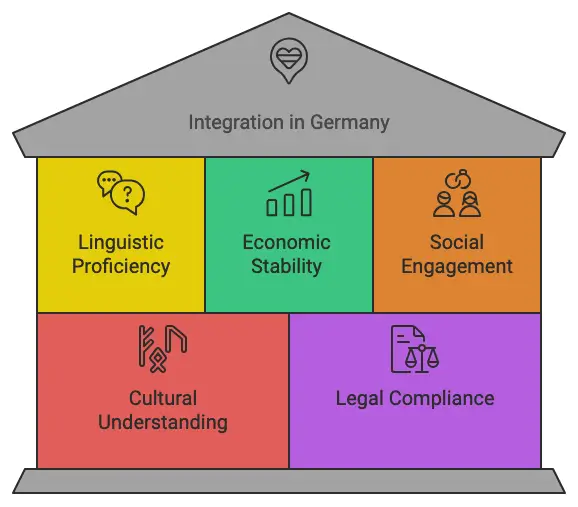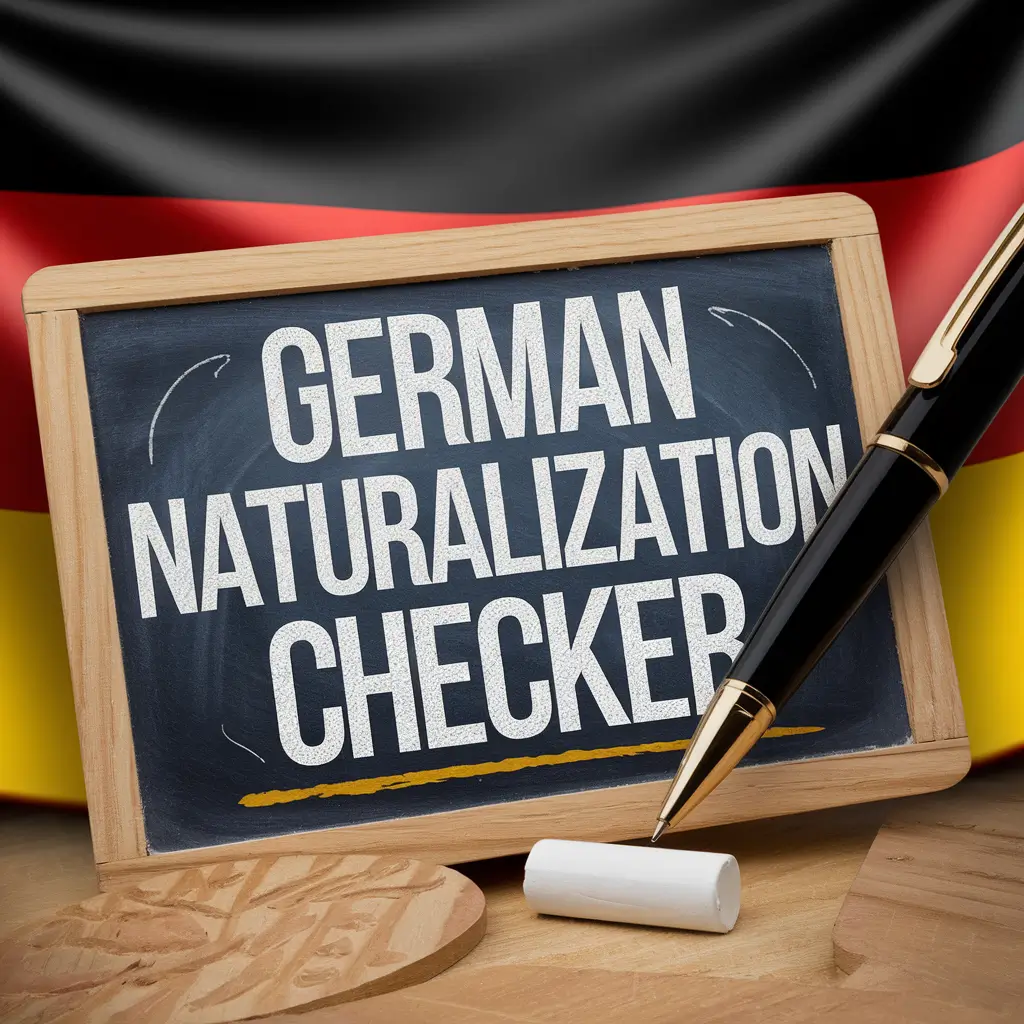Integration in Germany is more than just a bureaucratic checkbox—it’s a profound commitment to understanding and embracing German society. The recent citizenship law, implemented in 2024, has significantly transformed the landscape of naturalization, making the process more accessible while maintaining clear integration requirements.
Decoding Integration: What Does It Really Mean?
Proving your Integration in Germany involves demonstrating:
- Linguistic proficiency
- Economic stability
- Social engagement
- Cultural understanding
- Legal compliance

Language Mastery: Your First Integration Milestone
Demonstrating German language skills remains crucial for naturalization. The new citizenship law requires:
- B1 level proficiency for standard applications
- Proof of language competence through recognized certificates
- Consistent communication skills in everyday scenarios
Certification Strategies
Most applicants successfully prove language skills through:
- Goethe-Institut examinations
- telc German tests
- ÖSD (Austrian Language Diploma) certificates
Economic Stability: Showing Your Societal Contribution
The German government evaluates your economic integration by examining:
- Steady employment history
- Tax contributions
- Financial independence
- Professional qualifications
| Integration Indicator | Required Proof | Significance |
|---|---|---|
| Employment | Work contract/employment history | High |
| Tax Records | Annual tax declarations | Critical |
| Social Security | Continuous contributions | Essential |
| Professional Qualifications | Recognized certificates | Supportive |
Social Engagement: Beyond Paperwork
Authentic Integration in Germany transcends formal requirements. Authorities appreciate candidates who:
- Participate in German local community activities
- Understand German social norms
- Demonstrate respect for democratic values
- Show genuine interest in German culture
Practical Engagement Strategies
- Join local sports clubs
- Volunteer in community organizations (More details here to speed up your German naturalization through volunteering)
- Attend cultural events
- Participate in neighborhood initiatives: Try to use the app nebenan to check what’s going on on your surrounding.
Legal Compliance: The Fundamental Requirement
Your path to naturalization demands:
- No significant criminal record
- Respect for the constitutional order
- Understanding of legal and democratic principles and the German political system
- Peaceful coexistence with society
Documentation: Your Integration Portfolio
Compile a comprehensive portfolio including:
- Language certificates
- Employment records
- Tax declarations
- Community involvement evidence
- Character references
Timeframe and Residency Requirements
The 2024 citizenship law introduces more flexible residency conditions:
- Reduced residency period from 8 to 5 years
- Potential reduction to 3 years with exceptional integration
- Continuous legal residence in Germany
Common Challenges and Solutions
Many applicants struggle with:
- Complex documentation
- Language barrier
- Cultural adaptation
- Understanding bureaucratic processes
Pro tip: Seek guidance from:
- Local immigration offices (known as Ausländerbehörde)
- Integration courses
- Community support groups
- Professional immigration consultants
Financial Considerations
Naturalization involves:
- Application fees (approximately €255)
- German citizenship test (€25)
- Potential translation costs
- Certification expenses
- Optional consultation fees
Final Thoughts: Your Integration in Germany
Proving your Integration in Germany is a personal and bureaucratic odyssey. Approach it with patience, preparation, and genuine commitment to your new homeland.
Remember: Naturalization is not just about obtaining a passport—it’s about becoming part of a vibrant, diverse community.





